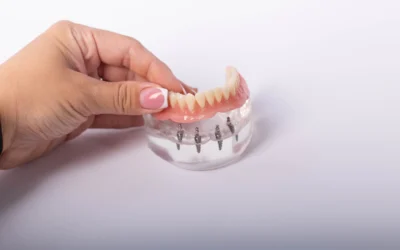Let’s explore some advantages and disadvantages of a root canal treatment so that you can be more prepared if you need a root canal on your next dentist visit.
The Pros
Root Canal Treatment Relieves Pain
Root canal treatment eases the discomfort associated with dental damage or decay. Pulp inflammation or infection usually comes with debilitating pain, and toothaches make it difficult to function efficiently without intervention.
Tooth or root canal pain quickly undermines daily life, even making it difficult for you to work or enjoy a favorite TV program. A root canal therapy removes this infection or inflamed pulp. The dentist or endodontist treats the pulp chamber with antibiotics if necessary, and the pain disappears once the dentist eliminates the infection.
Root Canal Prevents Alignment Issues
Many changes occur when you lose a tooth and fail to replace it in time. The adjacent teeth may shift into the gap, or the opposing teeth may super-erupt and alter your bite alignment. The changes could also lead to occlusion issues or temporomandibular joint (TMJ) disorders.
Instead of tooth extraction or another procedure that leaves gaps inside the mouth, your endodontist might recommend root canal therapy. The right root canal treatment will help your teeth maintain the correct alignment long-term.
Root Canals Preserve Natural Teeth
If you want to preserve a natural tooth, a root canal is an ideal treatment option. The endodontist fixes your existing tooth in a root canal operation instead of installing artificial options. A removable or fixed prosthesis is far more costly than a root canal, as well.
A root canal procedure involves removing the infected or inflamed pulp tissue, cleaning out the root canal content, and replacing it with filling material. It saves the natural tooth, and you don’t have to worry about bone loss. The root of the tooth will continue stimulating the bone, and the tooth feels natural when eating, speaking, and smiling.
Safer Than Other Treatment Options
The endodontic procedure presents far fewer risks than other options. For example, a small mistake during a tooth implant leads to severe complications in the treated area, including jaws, roots, nerve tissues, and crown.
The Cons
While you probably need a root canal to save a decayed or chipped tooth from extraction, the procedure does exhibit several disadvantages:
Root Canal Treatment May Weaken The Tooth
A tooth may weaken after treatment—root canal procedures involve drilling through it to access the pulp and remove decaying content. As the tooth fragments, it can become fragile and more vulnerable to chipping under pressure.
If the tooth is too weak to function, the dentist or endodontist may add a crown to strengthen the tooth. The extra support allows you to use it naturally after the root canal.
The Tooth May Become Dark after Root Canal Therapy
A tooth sometimes darkens after this endodontic treatment. The pigmentation is usually a result of a little pulp being left in the treated area. It could also be a side effect of root canal medications.
If necessary, a dental veneer or teeth whitening procedure can correct this discoloration.
Procedure May Require Several Appointments
In some cases, a dentist performs a root canal within a single session. The endodontic treatment can be complex if there is severe infection or damage, possibly requiring two to three dental appointments.
Patients will usually need at least two appointments to perform a root canal on upper first molars. These molars have three to five root canals, each of which needs treatment. Your endodontist may use a temporary filling inside the treated area awaiting a permanent filling and crown.
Root Canal Costs More than Extraction
When you’re experiencing excruciating tooth pain, you usually have the option of a tooth extraction or root canal treatment. An extraction will ease the discomfort without requiring you to break the bank, but the tooth is then lost.
Root canals are far more complex than extractions, requiring careful handling of the connective tissue, nerve tissue, and blood vessels. The procedure takes hours to complete, whereas an extraction is over in minutes.
Call My Emergency Dental Today
Proper oral care after a root canal treatment includes regular brushing and flossing to preserve oral health. The American Association of Endodontists recommends dental visits twice a year to identify dental issues earlier.
If you experience a prolonged toothache or hole in your tooth, you may need root canal treatment. Contact My Emergency Dental at 470-523-8118 to schedule an appointment with one of our experienced dentists. We handle many root canal procedures, but may refer you to an endodontic specialist if the root canal is more complicated, and will see you for the following visit to restore the tooth after root canal treatment is completed.



